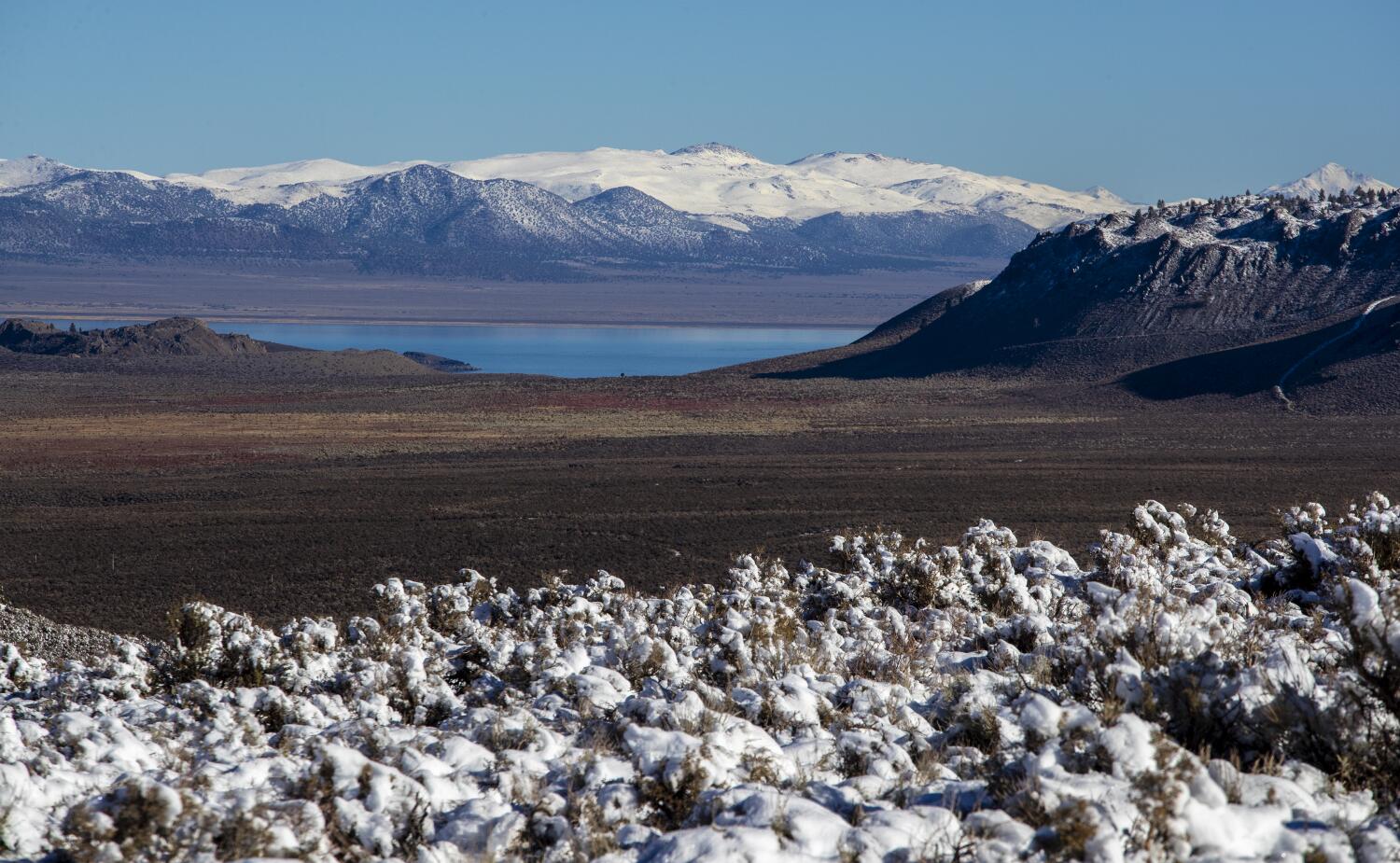-
Joe Rogan Trashes US Minimum Wage: ‘Disgusting’ - 15 mins ago
-
UC Berkeley law professors take on a case for colleagues: Fighting Trump research cuts - 46 mins ago
-
Iran’s Attack on a U.S. Base in Qatar Is a Nightmare Come True for Gulf States - 47 mins ago
-
Red Sox Get Massive Update on Alex Bregman Extension as Free Agency Decision Looms - 50 mins ago
-
Car Owner Leaves Hotel and Heads to Parking Lot—Shock at What Awaits - about 1 hour ago
-
$18.8-billion LAUSD budget approved; money shifted from retirees - about 1 hour ago
-
The Evolution of Trump’s Views on Foreign Aid - 2 hours ago
-
DHS Condemns Official Who ‘Calls for Gang Violence on ICE’: ‘Despicable’ - 2 hours ago
-
Californians fear racial profiling amid immigration enforcement - 2 hours ago
-
Kenyans Return to the Streets a Year After Deadly Tax Protests - 2 hours ago
A Republican plan to sell off public lands is no more — for now

A controversial proposal to sell off millions of acres of public lands across Western states — including large swaths of California — was stripped Monday from Republican’s tax and spending bill for violating Senate rules.
Senator Mike Lee (R–Utah) had advanced a mandate to sell up to 3.3 million acres of public land managed by the U.S. Forest Service and Bureau of Land Management for the stated purpose of addressing housing needs — an intent that opponents didn’t believe was guaranteed by the language in the provision.
Late Monday, Elizabeth MacDonough, the Senate parliamentarian — who advises the government body on interpreting procedural rules — determined the proposal didn’t pass muster under the the Byrd Rule, which prevents the inclusion of provisions that are extraneous to the budget in a reconciliation bill.
The move initially appeared to scuttle Lee’s plan, which has drawn bipartisan backlash. But Lee, chairman of the Senate Committee on Energy and Natural Resources, took to the social media platform X to say the fight wasn’t over.
“Yes, the Byrd Rule limits what can go in the reconciliation bill, but I’m doing everything I can to support President Trump and move this forward,” Lee wrote in a post Monday night.
In the post, he outlined changes, including removing all Forest Service land and limiting eligible Bureau of Land Management land to an area within a radius of five miles of population centers. He wrote that housing prices are “crushing young families,” and suggested that his proposed changes would alleviate such economic barriers.
Utah’s Deseret News reported that Lee submitted a revised proposal with new restrictions on Tuesday morning.
Environmentalists and public land advocates celebrated MacDonough’s decision to reject Lee’s proposal, even as they braced for an ongoing battle.
“This is a significant win for public lands,” said Jennifer Rokala, executive director for Center for Western Priorities, in a statement. “Thankfully, the Senate parliamentarian has seen Senator Lee’s ridiculous attempt to sell off millions of acres of public lands for what it is — an ideological crusade against public lands, not a serious proposal to raise revenue for the federal government.”
Lydia Weiss, senior director of government relations for the Wilderness Society, a conservation nonprofit, described the rejection of the proposal as “deafening.”
“And the people across the West who raised their voices to reject the idea of public land sales don’t seem particularly interested in a revised bill,” she added. “They seem interested in this bad idea going away once and for all.”
The proposal, before it was nixed, would have made more than 16 million acres of land in California eligible for sale, according to the Wilderness Society.
Vulnerable areas included roadless stretches in the northern reaches of the Angeles National Forest, which offer recreation opportunities to millions of people living in the Los Angeles Basin and protects wildlife corridors, the group said. Other at-risk areas included portions of San Bernardino, Inyo and Cleveland national forests as well as BLM land in the Mojave Desert, such as Coyote Dry Lake Bed outside of Joshua Tree National Park.
Source link

















